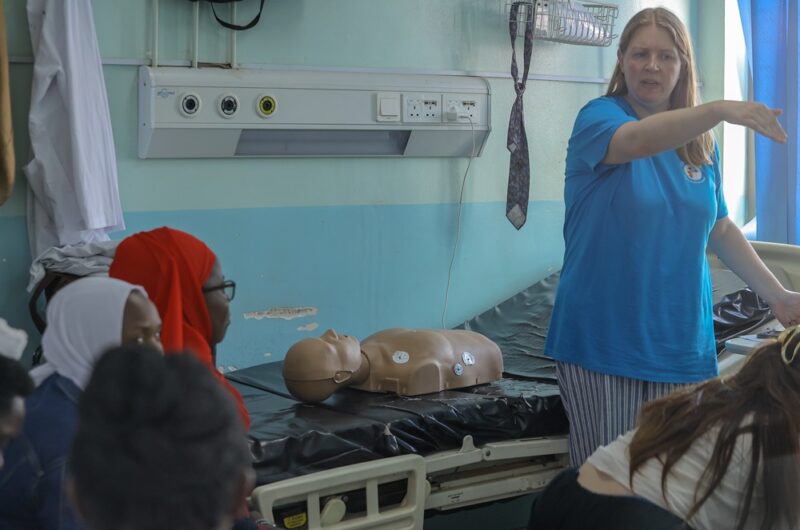By Georgie Sellick
Georgie Sellick is a Development Nurse in Critical Care at Cambridge University Hospitals NHS Foundation Trust (CUH) and a Bank Midwife at the Rosie Hospital. Here she explains how a week co-teaching and training Ugandan nurses and midwives has reignited her passion for staff learning and development.
“I have seen a growing relationship between the Kampala Hospitals and Cambridge University Hospitals through watching my colleagues participate in the SCALE Critical Care project. Having recently trained and qualified as a midwife, I particularly wanted to combine my knowledge of critical care nursing and midwifery skills and participate.
The aim of the SCALE project is to increase critical care capacity through workforce development between Uganda and the UK. This is achieved through remote and in-person learning, teaching and training. It is growing the critical care skills of healthcare staff in Uganda as well as improving morale and job satisfaction for UK based critical care nurses.
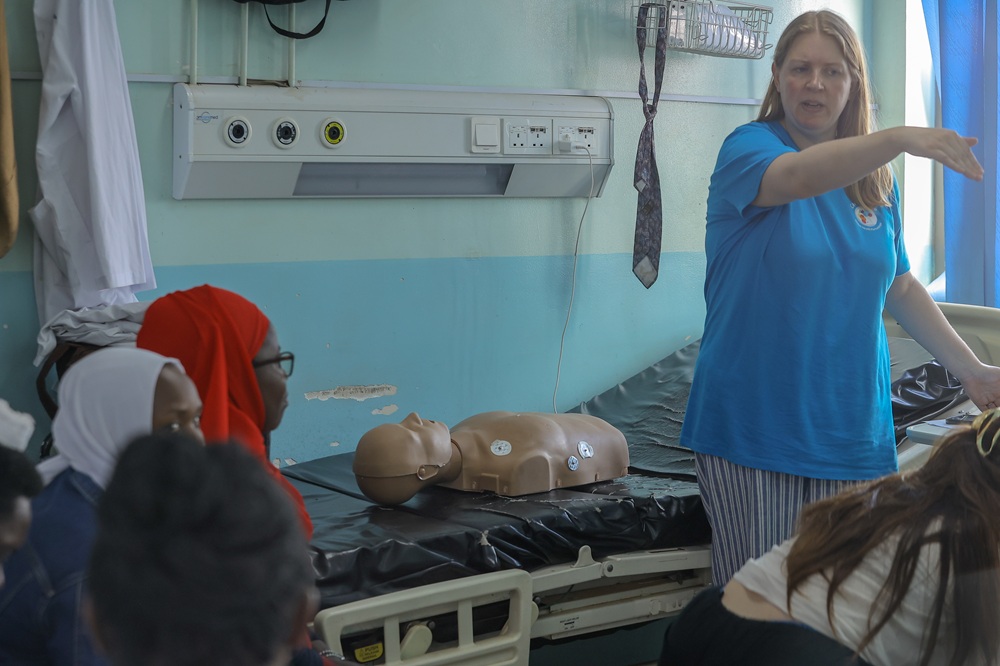
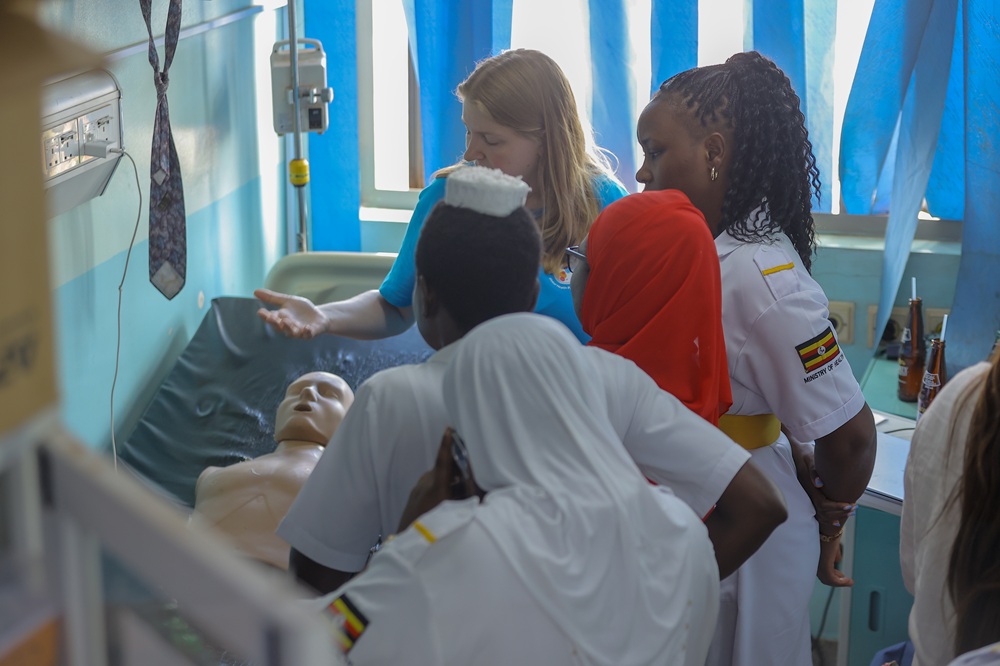
Learning from one another
I spent my week in Kawempe National Referral Hospital due to my dual qualification in nursing and midwifery. We set out to complete a two-day training programme for the midwives and nurses and repeated this programme a second time with a new group of staff during the latter half of the week. The training consisted of a mixture of classroom-based teaching and simulations, where they were able to practice and develop their skills.
The teaching around how to do standardised handovers to new staff coming onto the ward, how to escalate, and how to debrief as a team prompted a lot of discussion amongst the group, and I believe it had the biggest impact for both the Ugandan staff and me. As a midwife myself, I was able to relate professionally to the midwives working to consolidate their critical care skills. My dual qualification meant I was able to answer questions, linking those critical care skills to midwifery and obstetric scenarios and simulations.
Although I am fairly new within the critical care education team at CUH, I was able to use my teaching skills within the week at Kawempe, also supporting the nurses who accompanied me from the UK.
The most challenging part of the experience were the discussions around how the nurses and midwives have to adapt their care due to the lack of resources available in the clinical areas. The most rewarding was being able to step back, watching one of the Ugandan midwives teaching her colleagues how to use a bag valve mask in adults, using her experience in neonatal resuscitation and her natural affinity to teach.
My favourite experience of the trip was when we had finished our last teaching day. One of the midwives who had been with us for the two-day programme led a speech and song thanking us for our time sharing our experiences. It made me feel very valued and respected as a nurse and midwife. My other highlight was experiencing dinner after work one day with the staff from both hospitals, it was a very lively night!
It was rewarding being able to step back, watching one of the Ugandan midwives teaching her colleagues how to use a bag valve mask in adults, using her experience in neonatal resuscitation and her natural affinity to teach.
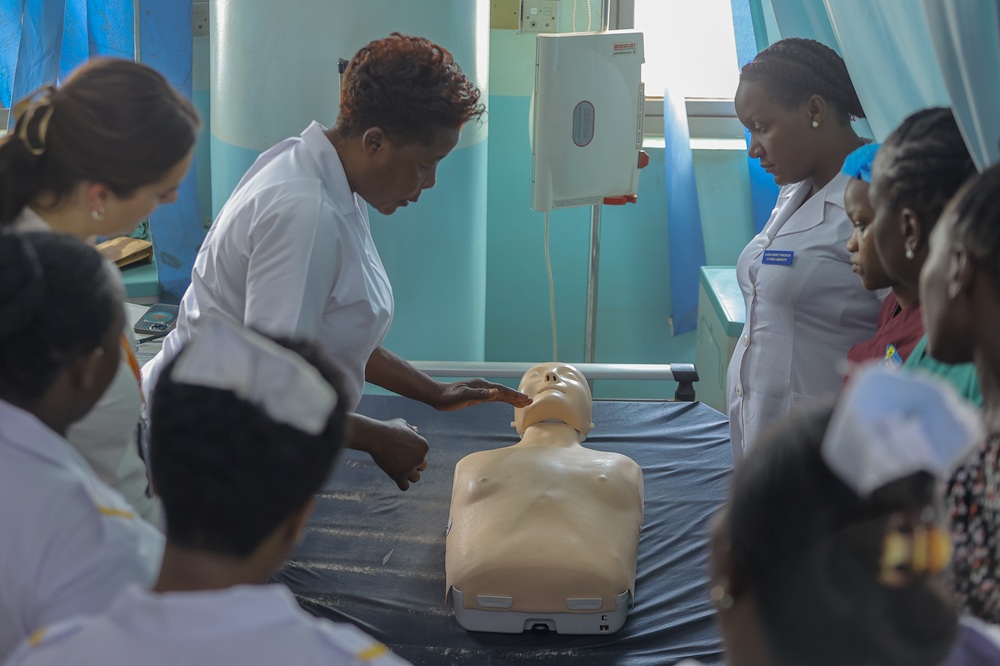
Growing in confidence and building stronger relationships
Being able to travel to Uganda with my CUH colleagues allowed me to experience a new challenge, enabling me to be refreshed in my role and improving my job satisfaction. I had previously travelled to East Africa 19 years before, so it was fascinating to return and see how the area has developed. The trip enabled me to get to know my colleagues more personally and improve my relationships with both the nurses and the midwives. I felt that I grew in confidence and adaptability, due to the warm and genuine welcome from our Ugandan colleagues.
Over the course of the two-day teaching sessions, I developed the valuable skill of patience and the ability to embrace silence—allowing space for others to speak, reflect, and lead. It was inspiring to witness our teaching groups grow in confidence, gradually taking ownership of the simulations and scenarios. This experience has reaffirmed my enthusiasm for staff development and simulation-based learning. I look forward to bringing these skills and renewed passion into my teaching practice at CUH.
The visit has also inspired me to explore undertaking more midwifery shifts, as I feel that I have reignited the passion for midwifery that I felt when I was a student. I enjoyed working with a large, vibrant group of midwives when delivering the teaching sessions, and I felt proud that I could join in with their stories and anecdotes about all thing’s midwifery!
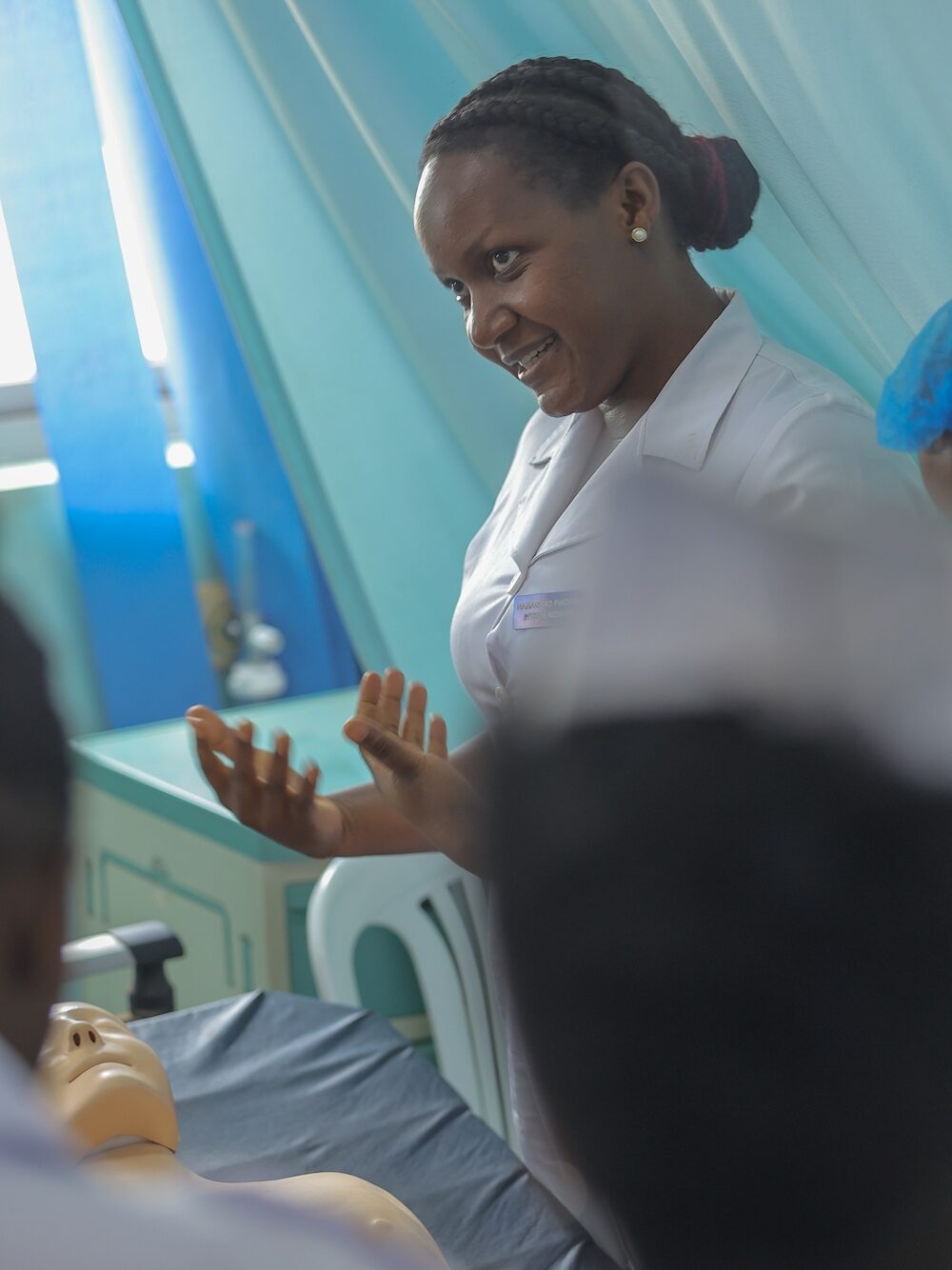
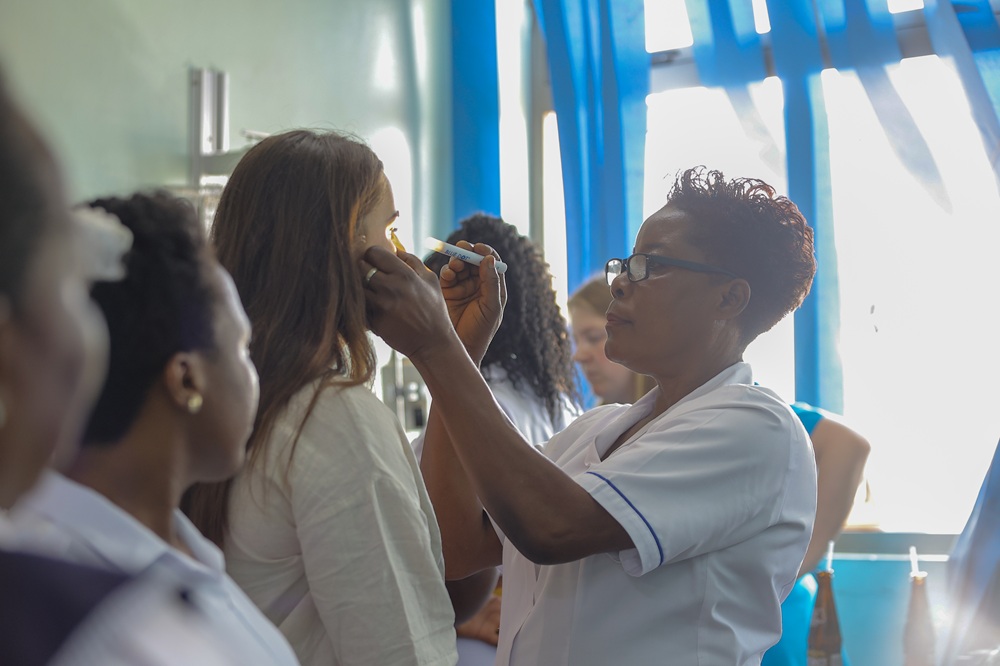
Making a lasting impact
I believe the training we provided as a team has improved the confidence of the midwives and nurses in Uganda to complete a full assessment of the deteriorating patient and utilise techniques to assess the airway. The use of simulation training enabled us to work collectively as a group, and I hope that the staff will continue to utilise these techniques in the future.
The midwives, who were now rotating to intensive care, were particularly keen to learn more about how to accurately assess their patient’s pupils and use the Glasgow Coma Scale (for assessing a person’s level of consciousness). Having spent a session concentrating on this, they were much more confident to practice these assessments in the clinical area.
Looking ahead
I would recommend global health work to my colleagues because it allows you to experience a world in healthcare outside your normal work bubble. It has allowed me to reinvigorate my passion for midwifery and clinical intensive care nursing, and I believe this would also benefit my nursing colleagues who may be thinking of leaving or taking a break from the profession.
Looking ahead, I would love to continue with the project and feel particularly passionate about helping to provide midwives with the skills to manage patients in the ICU. I would be interested in both virtual work and on location opportunities. I believe that my skills as both a midwife and an ICU nurse allows me to relate to many different healthcare professionals.”
Find out more about the SCALE Critical Care Project, the CGHP Grant Scheme, or contact us at info@cghp.org.uk
Return to blogs

